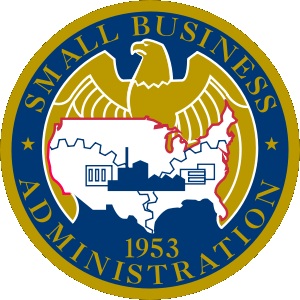Being pro-market is not the same as being pro-business. A free market means that nobody is using the coercive power of government to obtain unearned goodies, and that is true for big business as well as big labor, or any particular segment of the population.
Indeed, handouts to big business are the worst form of redistribution, as I noted in my previous post, because they transfer money from the poor to the rich and thus violate “Mitchell’s Guide to an Ethical Bleeding Heart”.
This is why I have strongly criticized subsidies and favors for the business community, whether for entire industries or for specific companies such as General Motors, Wal-Mart, and General Electric.
But it’s not just big business that should be weaned from the public teat. Veronique de Rugy of the Mercatus Center has a Wall Street Journal column explaining why the Small Business Administration should be shuttered.
…the SBA hurts more small businesses than it helps, wastes taxpayer money and distorts economic activity. The SBA’s main activity is to provide government-backed loans to qualifying small businesses. In fiscal 2011, the agency requested $1.5 billion in discretionary outlays. However, total outlays, which include projected payouts for defaults, were $6.2 billion. …the agency has suffered increased losses in recent years on its guarantees. How this trend will evolve depends on the economy and whether default rates on SBA loans continue to increase. Currently, outstanding loans guaranteed by the SBA—and federal taxpayers—total about $92.9 billion. …The SBA loan program is best understood as a subsidy to banks. Borrowers apply to an SBA-certified bank. The SBA guarantees 75% to 85% of the value of loans made in the flagship program. The banks then boost their earnings by selling the risk-free portion of the loans on a secondary market. Ironically, it’s also the biggest banks that do the most business through the SBA.
Ms. de Rugy then closes with an important insight from Frederic Bastiat (who is probably Veronique’s great great grandfather since I’m only slightly exaggerating when I say they’re the only two free market people in French history).
French economist Frederic Bastiat noted that many economic fallacies persist because the beneficiaries of government actions are easily visible, while the victims are harder to identify. The SBA is a classic example. Small-business owners who get subsidized loans feel good (so do the banks that profit from the loans), but we can’t identify how that capital would have been used absent government intervention. We can count the jobs created at the subsidized businesses, but we don’t know how many more jobs might have been created if market forces determined the allocation of capital. That’s the economic analysis. The political analysis is that politicians have successfully sold the SBA as a program to help small business—a widely held belief that’s almost as sacrosanct as baseball, motherhood and apple pie. In reality, the SBA is a form of corporate welfare, and America’s biggest banks are the only clear winners, leaving taxpayers on the hook for billions of dollars.
By the way, Veronique could use your help. There’s an online poll and the statists have been stuffing the ballot box. So click on the column link above and help her out. You folks have helped me prevail in some of my online debates for U.S. News and World Report (see here, here, here, and here), so don’t hesitate to cast a vote for Veronique and against cronyism.

